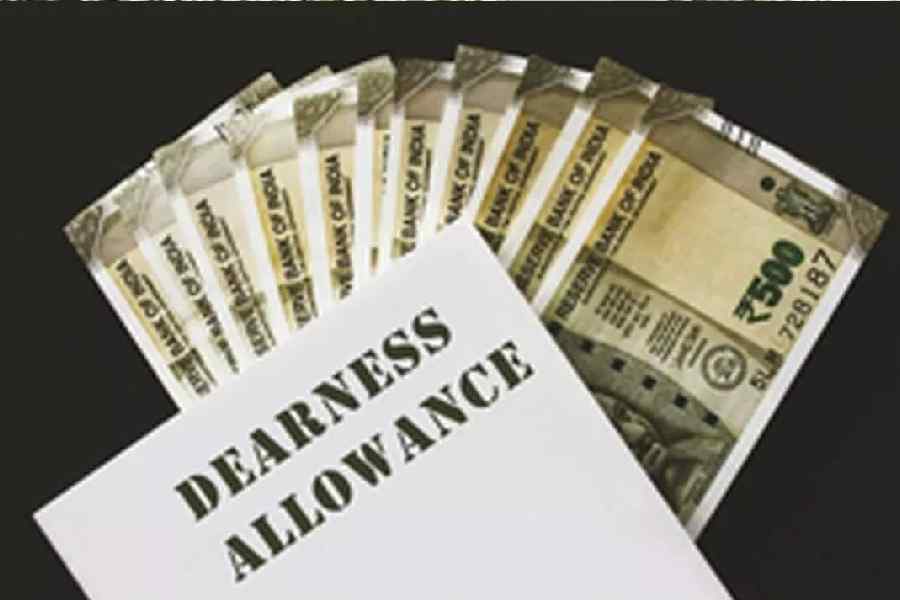The central government on Wednesday approved a 3 percentage point increase in the Dearness Allowance (DA) and Dearness Relief (DR) for more than one crore employees and pensioners, a move aimed at alleviating the impact of rising inflation.
The decision, announced ahead of Diwali, will put an additional burden of ₹9,448 crore on the exchequer.
Analysts said the hike will benefit only a section of households at a time inflation
has jumped to a nine-month high of 5.49 per cent in September.
“This is a short-term fiscal response to mounting inflation,” said Lekha S. Chakraborty, professor at the National Institute of Public Finance and Policy.
“It will increase disposable income in the hands of people, especially during the festive season. The consumption of white goods tends to peak during this time, and the additional income could trigger aggregate demand.
“However, this increase is confined to central government employees and pensioners. State governments are unlikely to follow suit given the constraints on their fiscal space and the volatility in central fiscal transfers,” she said.
A survey by LocalCircles showed nearly half of Indian families paying more than ₹75 per kilogram for tomatoes, ₹50 for onions and ₹40 for potatoes.
The survey highlighted the strain on family budgets, with the cost of a vegetarian meal rising 11 per cent year-on-year.
Devendra Kumar Pant, chief economist at India Ratings and Research, said inflation would remain elevated in the coming months. “We expect inflation to hover around the 5.3-5.5 per cent range in October.”
The rising cost of living is likely to persist among many households as food prices continue to climb, driven by supply chain issues and crop damage.
Farm MSP hike
The Cabinet on Wednesday raised the minimum support price (MSP) for wheat by 6.59 per cent to ₹2,425 per quintal for the 2025-26 rabi marketing season.
The ₹150-per-quintal hike in wheat support price comes ahead of elections in states such as Maharashtra and Jharkhand. The rabi marketing season begins in April 2025.
The Cabinet Committee on Economic Affairs (CCEA), chaired by Prime Minister Narendra Modi, approved the increase in MSP of six rabi crops in the range of ₹130-300 per quintal.
The support price for wheat has been increased to ₹2,425 per quintal for 2025-26 from ₹2,275 per quintal in the previous year.
In oilseeds, the cabinet increased the support price for rapeseed/mustard seed by ₹300 to ₹5,950 per quintal.
The support price for safflower was increased ₹140 to ₹5,940 per quintal from ₹5,800 per quintal in the previous year.
In pulses, the support price for lentil (masur) rose ₹275 to ₹6,700 per quintal, while gram MSP rose ₹210 to ₹5,650 per quintal for the 2025-26 marketing season.
The support price for barley increased ₹130 to ₹1,980 per quintal for the 2025-26 rabi marketing season from ₹1,850 per quintal in the previous year.
After five consecutive record harvests, a sharp rise in temperatures shrivelled India’s wheat crop in 2022 and 2023, prompting the world’s No. 2 producer to ban exports.
This year’s crop was also nearly 6.25 per cent lower than a government estimate of 113.3 million tonnes (mt), a leading industry body said earlier this year.
With inputs from Reuters











